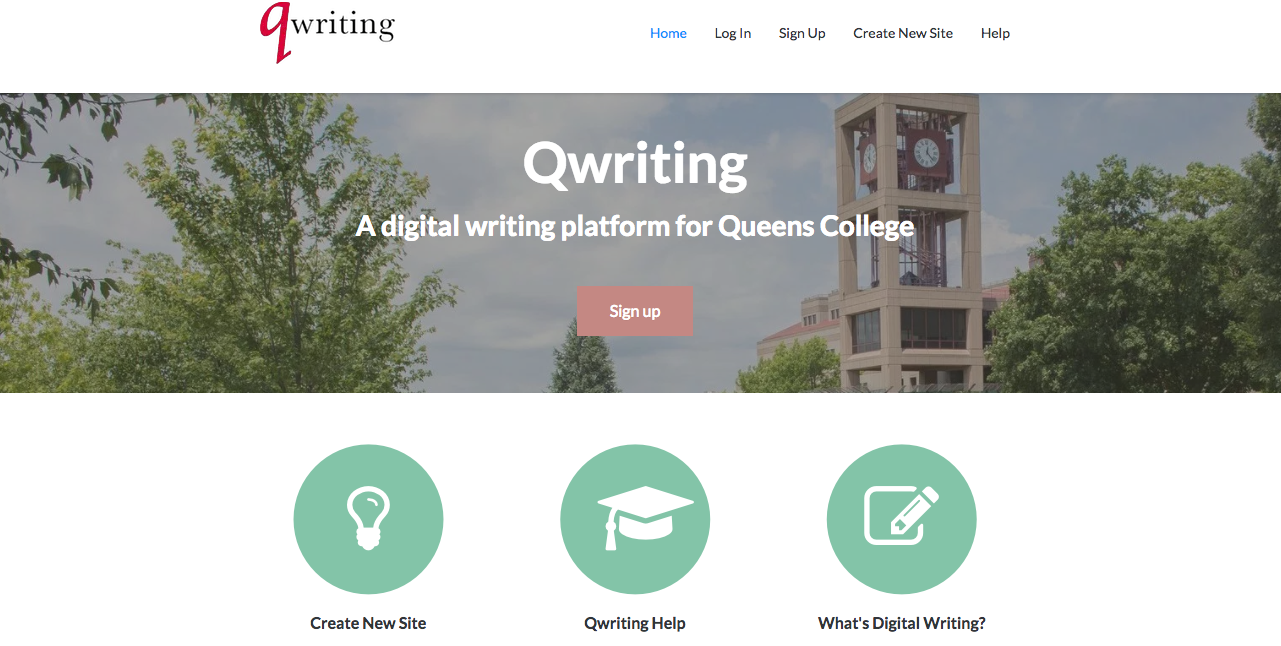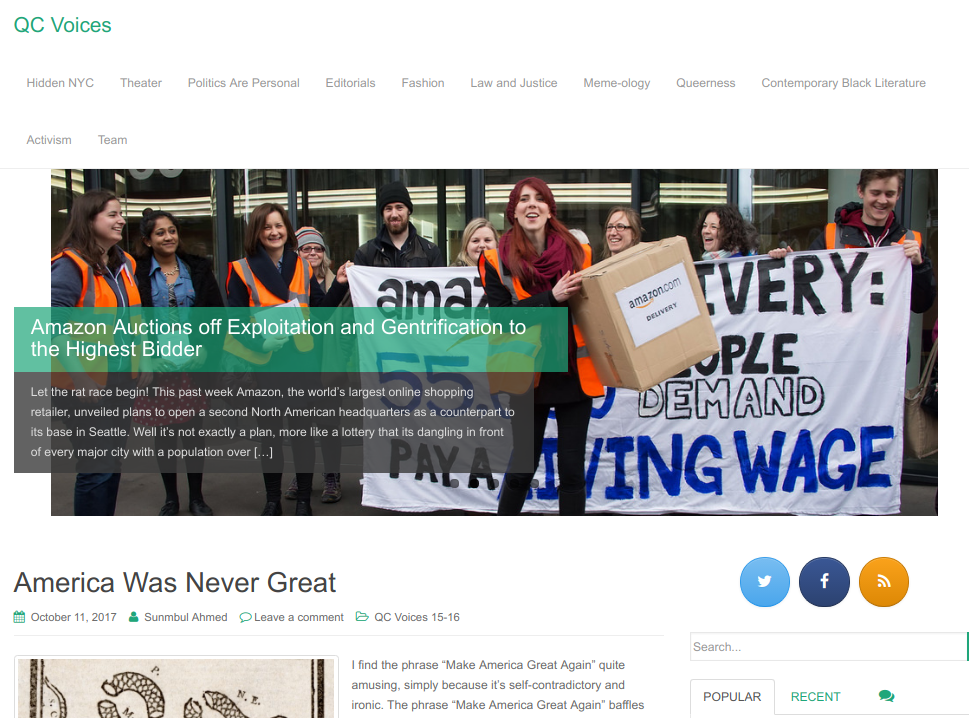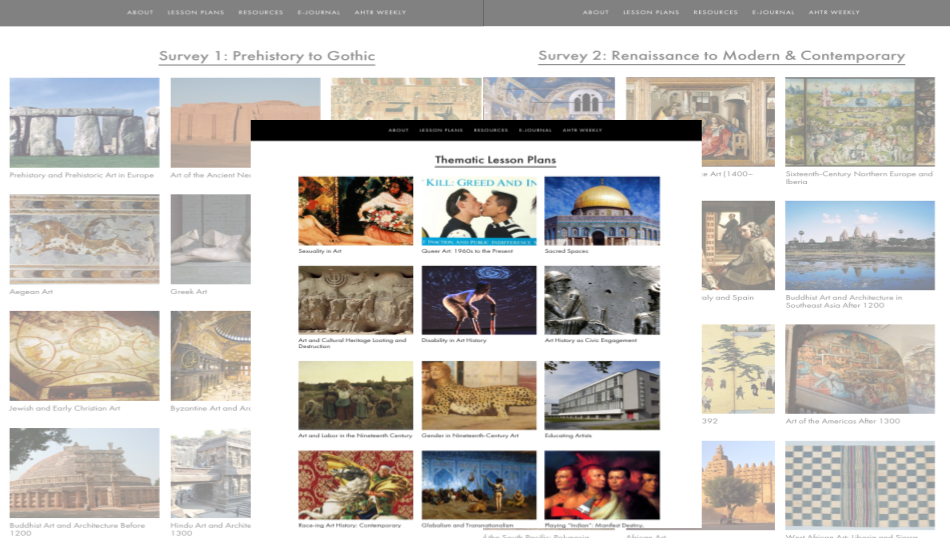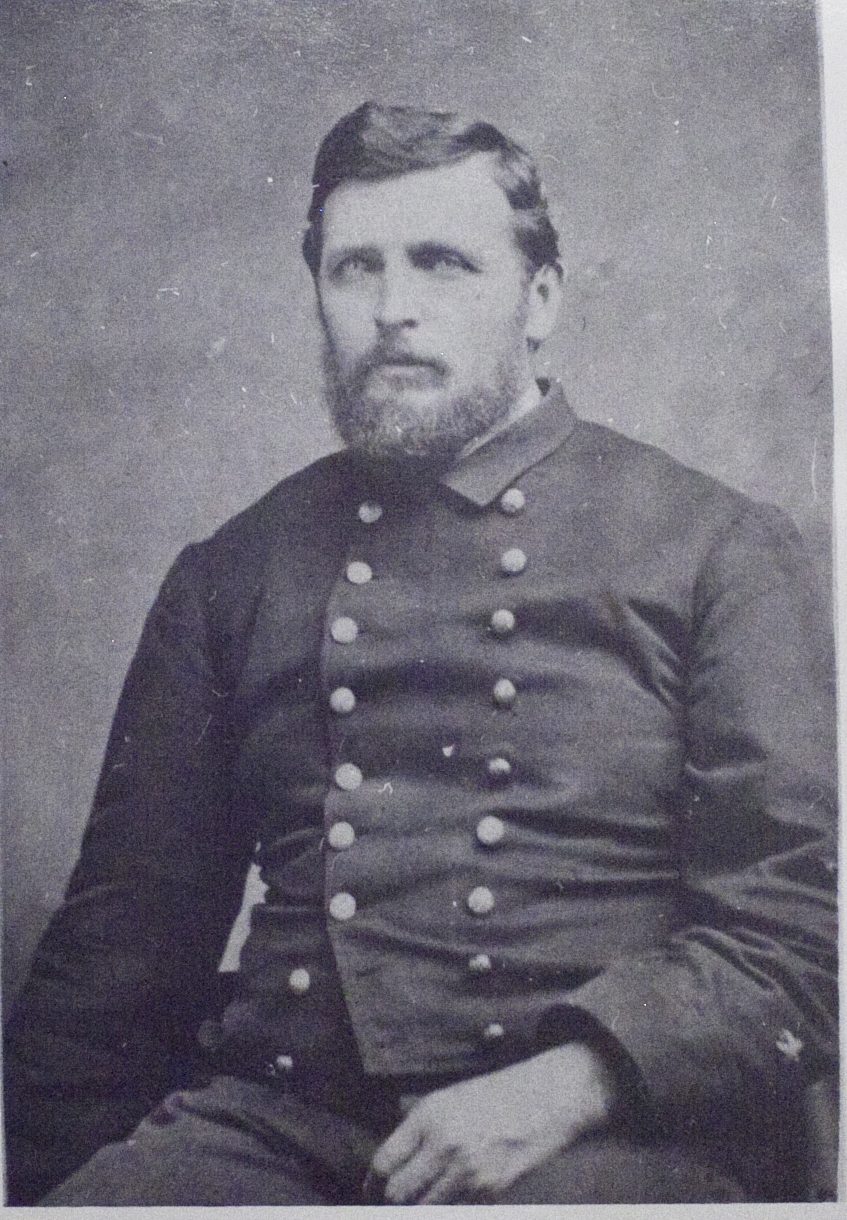2017 October
Spotlight: Jeff Allred and Research, Interpretation, Play: Billy Budd as Role-Playing Game via Ivanhoe for WordPress
On 27, Oct 2017 | In Spotlight | By Jojo Karlin
Project: Research, Interpretation, Play: Billy Budd as Role-Playing Game via Ivanhoe for WordPress
Project type: Digital Pedagogy, Writing
Campus: Hunter College
Follow: @jballred
GC Digital Initiatives Sound Series: Johanna Devaney
On 17, Oct 2017 | In Events of Interest | By Jojo Karlin
Registration for the GCDI Sound Series event Thursday, November 16th, 6:30-8:30 is now open.
GC Digital Initiatives Sound Series presents Dr. Johanna Devaney, who will introduce and teach her open-source software, Automatic Music Performance Analysis and Comparison Toolkit. Join us to learn about developing music software and to demo this toolkit for examining intervals between notes, tempo and relative dynamic level between notes, frequency and vibrato.
Read more at GCDI Events.
Spotlight: Equality Archive
On 16, Oct 2017 | In Spotlight | By Jojo Karlin
Creator(s): Shelly Eversley, Associate Professor, English, Baruch College, CUNY
Laurie Hurson, Ph.D. Candidate, Environmental Psychology, The Graduate Center, CUNY
Project: Equality Archive
Discipline: Feminist Archive, Digital Media
Campus: GC and Baruch
Follow: @EqualityArchive, @ShellyEversley, @Laurhur
The Equality Archive is a digital platform that hosts open access information about the history of sex and gender equality in the United States. Each archive entry contains intersectional and multimodal content in the form of text, images, sound, and video. In its collaborative and transformative approach, the Equality Archive marks a new direction for Open Educational Resources by offering multimodal educational content without copyright restrictions and builds on the feminist practice of collaborative work and socially transformative potential.
Written by a collective of over 25 feminists who are professors, artists, and authors, each archive entry is peer-reviewed and connects readers to opportunities to get involved through volunteering or donating to an established organization already working toward a social good that must include empowered women. As readers explore one entry, they will find connections–intersections–with other entries. They can browse the archive by searching via key words located in Equality Archive’s tag cloud or they can jump between entries through text hyperlinks, images, videos, and other media. By providing access to multimodal, open, and educational content, Equality Archive aims to share information and spark interest so that it can ripple outward, becoming a new wave of knowledge and action in the service of social good.
More information can be found in the Equality Project Statement: Equality Archive: Open Educational Resources as Feminist Praxis
Spotlight: QWriting 2.0
On 13, Oct 2017 | In Spotlight | By Jojo Karlin
Project director: Kevin Ferguson
Project: QWriting 2.0
Project type: Digital Pedagogy, Writing
Discipline: English
Campus: Queens College
Follow: @KevinLFerguson
Qwriting, a WordPress installation that serves the Queens College community, has over 19,000 users and hosts thousands of sites, including course blogs, student portfolios, and organizational pages. Qwriting 2.0 is a multiyear initiative to build on the Qwriting platform and the communities that rely on it. Over the past year, the Qwriting 2.0 initiative has included programs to support digital writing pedagogy, technical improvements to the Qwriting platform, increased support for teachers making use of Qwriting in their work, and increased support for student blogging initiatives such as QC Voices.
In spring of 2017, the Qwriting 2.0 team began a workshop series in digital writing pedagogy for instructors at Queens. This series, designed to show teachers in a variety of disciplines how best to deploy Qwriting and WordPress in their classrooms, engaged topics such as QWriting for Digital Assignments and Assessment and Strategies for Online Discussion, Annotation, and Collaborative Work. These sessions provide instructors with both the technical skills needed to use WordPress effectively and the space to consider how digital writing pedagogy can augment their own teaching practices.
To provide the Queens College community with a high-impact example of digital writing in practice, Qwriting 2.0 provides support for QC Voices, a flagship site that features student thought on issues such as queerness, social justice, equal representation in literature, and life in New York City. QC Voices highlights not only the diversity in perspective of Queens College students, but also their technical proficiency in both writing and modern digital rhetoric. The Qwriting 2.0 team maintains the site and guides and promotes the work of student bloggers as they create work that is routinely read by hundreds or thousands of visitors, both within and outside the Queens College community.
A critical part of the Qwriting 2.0 initiative is the ongoing evaluation and improvement of the Qwriting platform, including considerations of usability, aesthetics, and performance. In the last year, the Qwriting 2.0 team has made technical improvements to increase the speed of the platform, redesigned the site’s home page and documentation, and rethought the signup and site creation process to better serve common use cases. The team also actively encourages adoption of the platform through consultations, class visits, and office hours.
Spotlight: Bret Maney and Mapping New York Literary History
On 11, Oct 2017 | In Spotlight | By Jojo Karlin
Campus: Lehman College
Mapping New York Literary History is a digital public writing project produced by Lehman College English majors enrolled in Bret Maney’s American literature courses. The project engages students in original research and writing about New York locations that have a significant bearing on American literary history. Students document these sites through notes, photographs, videos, and interviews, and carry out library and archival research. The result of their investigations is a series of multimodal essays posted online under their names, initials, or a pseudonym, and organized through a mapping interface powered by Carto and hosted on the CUNY Academic Commons.
The goal of Mapping New York Literary History is fourfold: (1) to foster student engagement with local literary history and American studies; (2) to introduce students to the practice of writing for digital publics; (3) to enhance students’ digital literacies; and (4) to collaborate in the public humanities mission of sharing our disciplinary expertise with the wider community on the web. Through this project, students’ research and writing becomes a permanent contribution to the digital documentation of our city’s and region’s literary history. Lehman English majors have done some truly remarkable work, and we are excited to share it with you.
To begin exploring the Mapping New York Literary History project, click here. Most essays focus on literary sites within the five boroughs, but follow the river north to the Catskills, go west to Weehawken, NJ, or east to Long Island for more literary excavations!
For a scholarly discussion of the digital pedagogy involved in this project, see Bret Maney’s recent Kairos article, “Critics and Cartographers in the Literature Classroom: Using CARTO and WordPress to Build a Digital Public Writing Project.”
Spotlight: Art History Teaching Resources
On 05, Oct 2017 | In Spotlight | By Jojo Karlin
Project type: Digital Pedagogy
Campus: Baruch
Each academic year, AHTR publishes a series of blog posts on the AHTR Weekly, an increasingly popular feature at ArtHistoryTeachingResources.org. While these short essays primarily target art historians and museum educators, instructors in other disciplines now look to the Weekly for information about innovative pedagogies, open educational resources, and technology-enhanced teaching. Among topics slated for this year are “What’s Your Sutori? Interactive Study Guides and Active Note-Taking,” “Kimono Wednesdays,” “Bomb the Church,” and other effective Reacting to the Past (RTTP) games,” and “3D Printing.”
Some contributors have developed their Weekly posts into peer-reviewed publications for Art History Pedagogy and Practice, AHTR’s academic e-journal on scholarship of teaching and learning. At conferences, AHTR provides faculty opportunities for professional development and collaborative exchange. In October, AHTR will host a session “Pedagogically Sound Approaches for Hybrid and Online Learning,” at the Southeastern College Art Association (SECAC), and for the second year in a row, AHTR organized a round of lightning talks on teaching and learning for the College Art Association (CAA). These presentations, addressing the “State of the Art (History): Re Examining the Exam,” along with proceedings from our SECAC session will be shared and archived through reflection posts on the AHTR Weekly. AHTR is also excited to partner with CAA’s Education Committee this year on a one-day “boot camp” for faculty interested in conducting Scholarship of Teaching and Learning in Art History, and is planning a special issue of Art History Pedagogy and Practice focused on projects developing from this event.
Spotlight: Matthew Knip and The Philip C. Van Buskirk Archive
On 02, Oct 2017 | In Spotlight | By Jojo Karlin
Project: Philip C. Van Buskirk Archive
Project type: Digital Archives, Digital Publishing
The Philip C. Van Buskirk Archive employs a small group of CUNY students to digitize and make freely available the first seven years of the unpublished journals of Philip C. Van Buskirk. The nearly-completed archive is free and publicly available for reading and searching.
Born into the upper class, educated and literate—the son of a Maryland Secretary of State—Van Buskirk “fell” into the working-class, largely illiterate, maritime culture after his father’s suicide. Beginning in 1851 and running for fifty years, he kept an extensive diary of the intimate details of his life and the lives of his fellow sailors.
The resulting journals provide a unique window into aspects of this working-class world that have proven difficult for scholars to access because they were almost never written down. While the journals present his perspective, they also allow access to voices he discovered in working-class spaces, perspectives that were seldom allowed within written discourse of the time. The journals have the capability to reshape assumptions at the heart of history, art, literary, and cultural criticism.









 Welcome to the blog of the CUNY DHI, an effort to build momentum and community around Digital Humanities practitioners at CUNY. We hope you'll join us at our upcoming events and that you'll follow this blog to hear about the latest news in the field.
Welcome to the blog of the CUNY DHI, an effort to build momentum and community around Digital Humanities practitioners at CUNY. We hope you'll join us at our upcoming events and that you'll follow this blog to hear about the latest news in the field.



Recent Comments